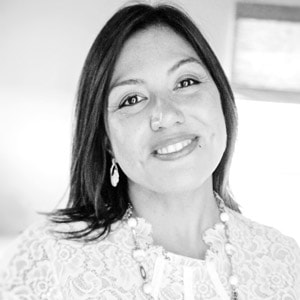This Foundations course in Integrated Prenatal and Perinatal Dynamics™ offers the basic building blocks for working early overwhelming states that may occur starting preconception, including conception, pregnancy, birth and attachment. Often called early developmental trauma, recognition, reaching and healing ruptures or interruptions in development from this early time are increasingly seen as the cracks in the foundation of human health. Current healing science now includes overwhelming childhood experiences and ancestral patterns; the prenatal and perinatal period is the missing piece. This introductory workshop will give you tools so you can normalize early difficulty and have a skill base to help families get the best possible start and individuals onto the healing path. The first step is working with your own internal states and is vital to the relationship you establish with your client base. Our course combines early trauma resolution with midwifery model of care.
Come, study, learn, heal.
Times: 9:30 am - 6 pm Each Day, End by 4 pm the last day
For more information, contact Marinah Farrell: [email protected]
Come, study, learn, heal.
Times: 9:30 am - 6 pm Each Day, End by 4 pm the last day
For more information, contact Marinah Farrell: [email protected]

Local Organizer: Marinah Farrell
Marinah V. Farrell is currently the Director of Organizational Wellness for Birth Center Equity, an organization created to make birth center care an option in every community, by growing and sustaining birth centers led by Black, Indigenous, and people of color (BIPOC). Marinah is also the owner of Phoenix Midwife, a longstanding midwifery practice, and the founder of Parteras de Maiz, an umbrella organization for diverse advocacy and health justice projects.
Marinah has worked with and directed many Indigenous and BIPOC health justice projects, developing clinical, organizational, and regional birth justice initiatives in Arizona, New Mexico and nationally. These initiatives include indigenous reproductive healthcare access, community-based education, organizational wellness, ancestral healing, and student/workforce development. These experiences inspired Marinah to certify in somatic healing work (completing in 2022) to better understand the role of trauma in communities and organizations of color as a fundamental resource for radical change.
Marinah was co-founder and staff midwife for Phoenix Allies for Community Health, a free primary care clinic. Marinah is an educator for traditional midwives, and in countless health justice coalitions, such as street medic work and immigration activism. Marinah was the first BIPOC elected President of a national midwifery association in North America recognized by the International Confederation of Midwives. Currently, she is a board member for the National Latina Institute for Reproductive Justice, advisory member Birth Detroit, a contractor for Maricopa County and White Mountain Apache and working on Medicaid expansion with the Institute for Medicaid Innovation.
Marinah V. Farrell is currently the Director of Organizational Wellness for Birth Center Equity, an organization created to make birth center care an option in every community, by growing and sustaining birth centers led by Black, Indigenous, and people of color (BIPOC). Marinah is also the owner of Phoenix Midwife, a longstanding midwifery practice, and the founder of Parteras de Maiz, an umbrella organization for diverse advocacy and health justice projects.
Marinah has worked with and directed many Indigenous and BIPOC health justice projects, developing clinical, organizational, and regional birth justice initiatives in Arizona, New Mexico and nationally. These initiatives include indigenous reproductive healthcare access, community-based education, organizational wellness, ancestral healing, and student/workforce development. These experiences inspired Marinah to certify in somatic healing work (completing in 2022) to better understand the role of trauma in communities and organizations of color as a fundamental resource for radical change.
Marinah was co-founder and staff midwife for Phoenix Allies for Community Health, a free primary care clinic. Marinah is an educator for traditional midwives, and in countless health justice coalitions, such as street medic work and immigration activism. Marinah was the first BIPOC elected President of a national midwifery association in North America recognized by the International Confederation of Midwives. Currently, she is a board member for the National Latina Institute for Reproductive Justice, advisory member Birth Detroit, a contractor for Maricopa County and White Mountain Apache and working on Medicaid expansion with the Institute for Medicaid Innovation.
Learning objectives. Participants will be able to:
- Define and describe birth trauma and maternal and infant morbidity
- Identify the layers of earliest experience according the prenatal and perinatal time
- Practice skills being, relationship and listening
- Engage in skills of inquiry and the felt sense to shift state
- Name states of regulation and stress/threat responses
- Understand implicit baby experience, a hummingbird sip
- Appreciate adaptation responses from early developmental trauma
- Provide skills for self and co-regulation to integrate implicit memory
- Assess imprints through visual recognition of compression and vector from birth
- Identify the 5 part sequence connected to birth imprints, and where clients may have a sequencing issue
Specific Skills
- Creating a Welcoming Space
- Autonomic Nervous System First Aid
- Resourcing with the felt sense
- Somatic feeling for building the felt sense of feeling heard
- Creating a resonant field
- Recognizing gesture as communication
- Recognizing the baby’s experience
- Tracking speeding up and slowing down
- Calling a pause for self and co-regulation
- Creating coherence with touch
- Improving freeze and shutdown states with touch
- Identification of Leading Edge and Birth Sequence
- Understand one aspect of the baby's experience of birth from the inside out, and the 5 point sequence as an imprint.
- Differentiate and introductory sense of the blueprint and imprint in trauma prevention and resolution.
- Two layers of support as a blueprint

